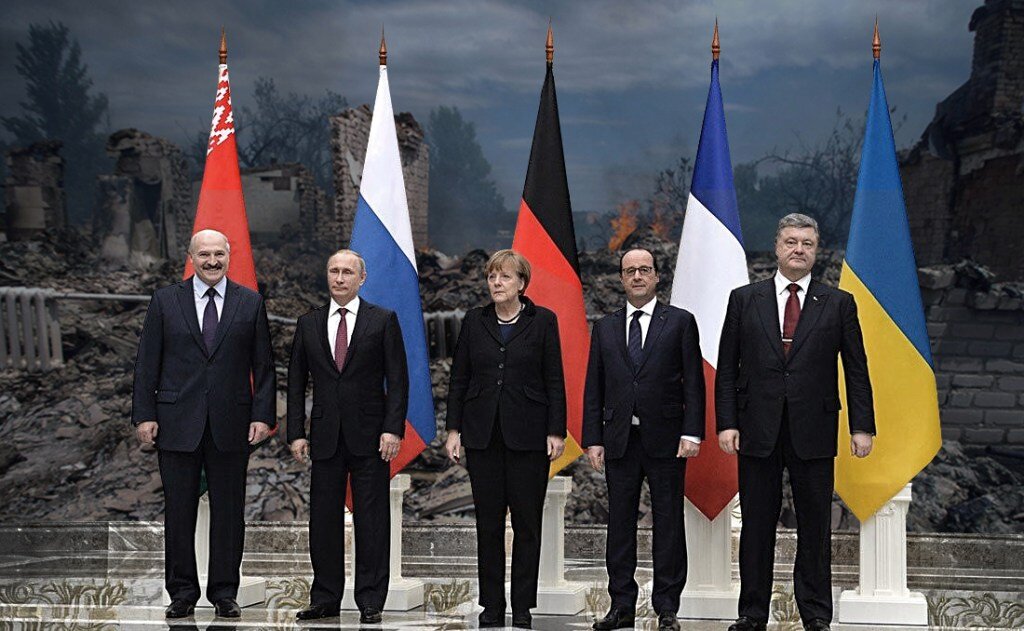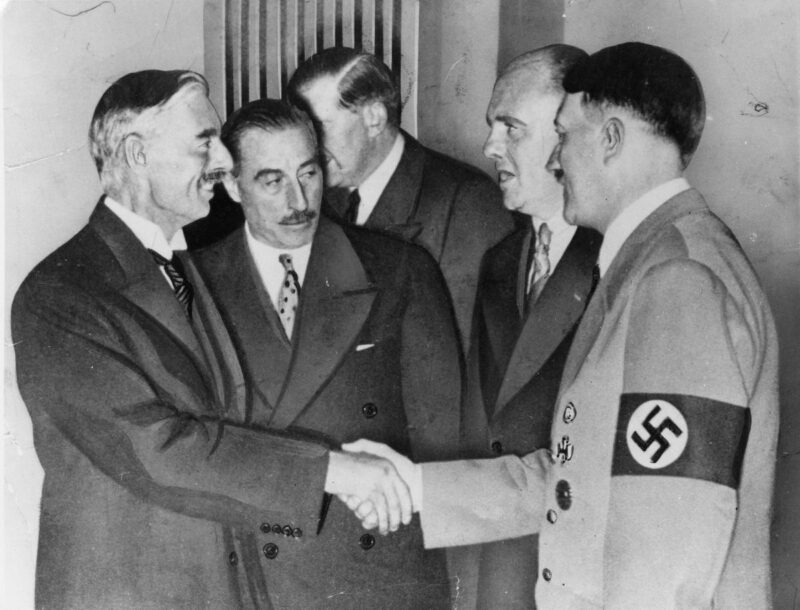Last week, the new administration in Washington, DC, began publicly discussing details of its peace proposal. To the dismay of Ukrainians and their supporters, Donald Trump and his Secretary of Defense, Pete Hesgeth, seem to have unilaterally taken Ukraine's two biggest demands off the table:
- NATO membership
- a return to internationally recognized borders.
At this early juncture, it’s difficult to know how negotiations will materialize, and talks may yet take a turn in Ukraine’s favor; still, it's a fallacy to assume that peace without those two conditions would make the continent safer.
Giving Vladimir Putin what he wants would reward his decision to invade Ukraine and only increase the likelihood of future military conflict in Eastern Europe. It would also undermine the guiding principle of post-war European security policy: deterrence.
Russia’s invasion of Ukraine is the latest in a series of escalating actions intended to test the limits of international conflict prevention.
When Russia invaded Georgia in 2008, it faced limited pushback beyond statements of condemnation, signaling a low appetite for substantive action by Georgia's allies in NATO.
Even as Ukrainians fought for a future in Europe and away from the grip of Russian influence, Putin gambled that the international community would once again be light-handed in its response to his annexation of Crimea and offensive in the Donbas in 2014.
With the exception of coordinated economic sanctions, he was correct.
Rewarded once again for his belligerence and confident that NATO wouldn’t intervene with enough aid to keep the Ukrainian military afloat, Putin decided to reignite the frozen conflict by launching a full-scale invasion in 2022.
This war is the latest action in a two-decade-long policy of neo-imperialism enabled by the inability of the international community – and, above all, NATO member states – to impose high enough costs on military aggression.
Although NATO members have managed to scrape together enough to keep Ukraine competitive on the battlefield, an unjust peace risks justifying the costs Russia has accrued over the past three years by codifying its occupation of Eastern Ukraine and Crimea. That would be a victory in Putin’s book and save face domestically for starting a conflict that has killed hundreds of thousands of Russians and left its economy in shambles.

Russia’s last “Ukraine peace deal” led to Europe’s biggest war since WWII. Here’s why this one could be worse.
A deal that blocks Ukraine from joining NATO and enshrines Russia’s control of Ukrainian territory does not guarantee peace. In fact, giving in to Putin’s demands undermines the deterrence on which European security policy relies.
If NATO and its allies can’t back up their defense posture with resolve in the face of aggression, military support to turn the tide of conflicts, and results on the battlefield and at the negotiating table, NATO loses its greatest strategic advantage.
It is, at its core, an organization designed to preserve peace, but it can only do so only if its adversaries think it too risky to attack. Right now, Putin sees NATO’s security umbrella in Europe as an obstacle in future conflicts but not a guarantee of Russian military defeat.
Putin sees NATO in Europe as an obstacle, but not a guarantee of Russian military defeat.
With the United States’ transatlantic security commitments in question, NATO’s European member states will have to bear the brunt of the expense of reestablishing an effective deterrent against future aggression. Whether or not Ukraine joins NATO, it must be assured a place in the European security framework that NATO has established in order for it benefit from the alliance’s deterrent.
If peace talks continue on their current trajectory, for Ukraine's survival, security guarantees to Ukraine must be backed up by:
- continued peace-time military assistance;
- creation of a comprehensive air defense system and defensive fortifications along the border with Russia;
- rebuilding and improving key military infrastructure;
- a firm, unconditional commitment to fight hand-in-hand with Ukraine if it is once again threatened by Russian aggression.
Anything other than a total expulsion of Russian forces from Ukraine’s internationally recognized borders would yet again reward Putin’s belligerence. Europe can take that threat seriously now and help secure a better peace for Ukraine by leveraging new aid packages and a renewed resolve against Russian aggression, or they can suffer the consequences of an unjust peace for Ukraine as Putin inevitably plans for a future offensive.
Appeasing an aggressive power only whets its appetite for further conquest. Neville Chamberlain learned that the hard way only a year after his ill-fated declaration of “peace for our time!” As German tanks rolled into western Poland, that couldn’t have been more wrong.
If Ukraine’s allies don’t want to repeat the mistakes of the past, they must do more to secure peace than just force Ukraine to agree a deal with Putin’s Russia. NATO has an integral role in ensuring Ukraine’s security moving forward; by establishing a more effective deterrent, the alliance can end Putin’s cycle of conflict and reward.
Editor's note. The opinions expressed in our Opinion section belong to their authors. Euromaidan Press' editorial team may or may not share them.
Submit an opinion to Euromaidan Press
Read also
-
NATO must reform or be dissolved
-
Trump has no substitute for victory in Ukraine
-
Appeasement in history: Yalta Deal
Inside the West’s fatal peace deal with the Kremlin that exploded into the Cold War
-
Appeasement in history: the Munich betrayal
Munich and the Molotov-Ribbentrop pact revisited, Part 3: The way to European catastrophe

